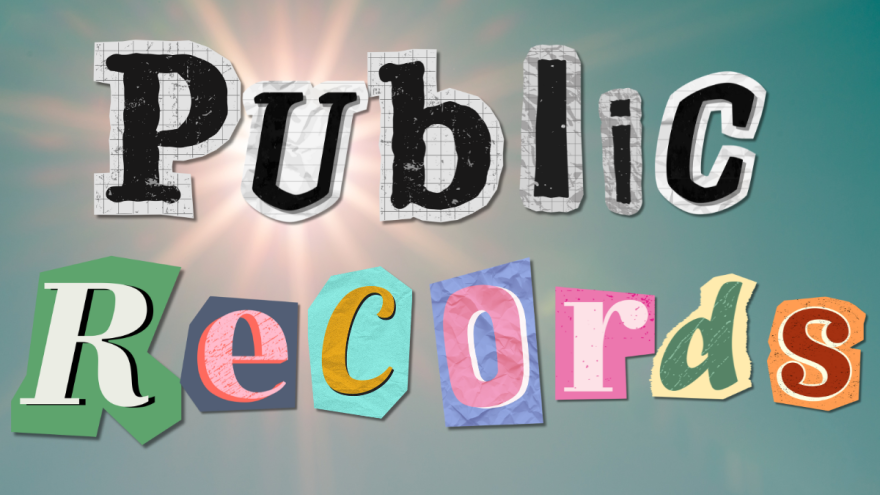Florida’s open government law, also called the Sunshine Law, make it possible for people to access public records from any state, local, or municipal government.
Florida Statute 119 is the chapter of the state constitution outlining what types of records are considered public — all "documents, papers, letters, maps, books, tapes, photographs, films, sound recordings, data processing software, or other material," sent or received by any agency.
Ted Bridis, a senior lecturer on investigative reporting at the University of Florida, gives some examples of the types of records someone could request.
"You could ask, for example, for emails to or from a city commissioner in your jurisdiction," he said. "You could ask for the information about who's in the county jail and what charges they're facing."
ALSO READ: Your Florida breaks down the state's Sunshine Laws
But if you’re not sure what to ask for, he has another tip.
"One thing that you could do is ask for a list of what other people have already requested," Bridis said. "Some agencies, not all of them, do keep that list of requests, and that'll give you an idea of the types of information that might be available to you."
How to request a record
Most agencies allow you to request a record in a couple of different ways: in person, by phone, fax, email, or U.S. mail.
Whichever way you choose, it's recommended to keep a record of your request to stay on top of it. It's also important to note that once you submit a public records request, it also becomes public record.
When you write out a request, you should be as specific as possible in what you're looking for.
Start with citing the law - Florida Statute 119.
Tell the agency exactly what you want — types of records, timeframe, names or domains at the end of emails involved, etc. Also ask the agency to tell you the specific exemption if they deny your request.
Ask how much the agency will charge you for the request, and specify how you'd like to receive the records — PDF, CDs, physical copies, etc.
You can make requests anonymously, but including some contact information can make it easier to receive them. In addition, you are not required to disclose why you want the records.
Here are some of Florida's government agencies where you can request records:
- Department of Revenue
- Department of Environmental Protection
- Department of Highway Safety and Motor Vehicles
- Department of Health
- Department of Financial Services
- Department of State
- Department of Children and Families
- Department of Corrections
- Department of Business and Professional Regulation
- Department of Education
- State University System of Florida Board of Governors
- Florida Public Service Commission
- Justice Administrative Commission
- Office of Gov. Ron DeSantis
- and so many more...
The First Amendment Foundation is a great resource if you have trouble finding a record or don't know where to begin.
Know your rights
Floridians are guaranteed certain rights when it comes to records. The State Attorney General’s website says:
- You have the right to inspect and copy records at any reasonable time.
- You have the right to request them without having to show identification.
- You have the right to ask how long it will take and how much it will cost to produce the records.
- You have the right to ask for a written statement of why the request was denied. If an agency refuses to fulfill a request without a reason, there are legal actions you can take.
- Finally, you have the right to be present and unobtrusively record public meetings.
What makes a meeting public
Any gathering, formal or casual, of two or more members of the same board or commission discussing official business is considered a public meeting.
And you are allowed to record them at meetings, so long as it’s not disruptive.
Florida law requires agencies to provide proper notice for all meetings so the public can adequately prepare. It depends on the meeting type, but the state only requires a "reasonable amount of time." That's generally accepted as seven days written notice before a general meeting and 24 hours before an "emergency" meeting.
Want to join the conversation or share your story? Email Meghan at bowman4@wusf.org.
If you have any questions about state government or the legislative process, you can ask the Your Florida team by clicking here.
This story was produced by WUSF as part of a statewide journalism initiative funded by the Corporation for Public Broadcasting.


